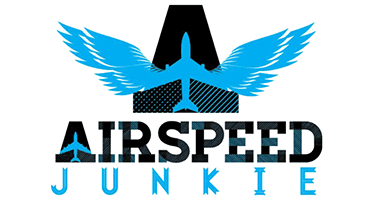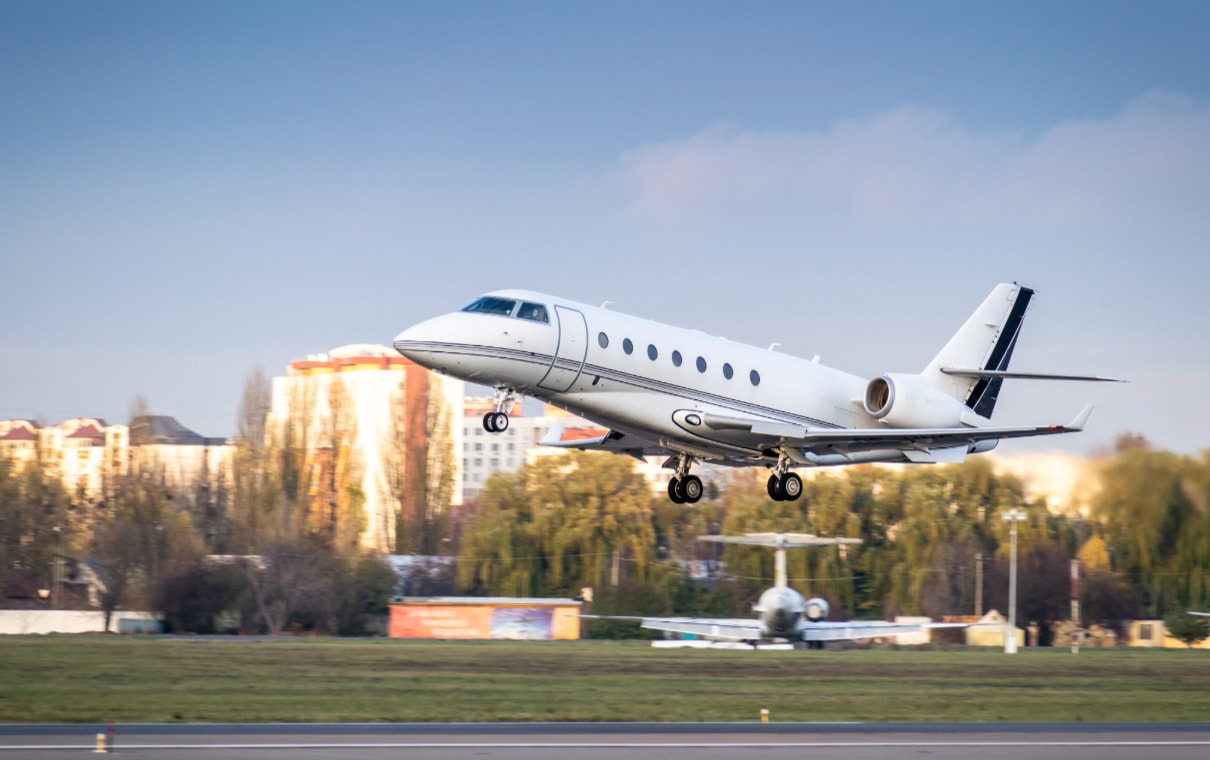Is Starting Airline Pilot Flight Training After Age 30 A Good Idea?
How About Age 40 or even 50? Is it too late to become a pilot?
Is it too late in life to start flight training?
Here is the magic question I always ask myself in any sort of big life decision. What is the goal? Starting here is a way to cut out all the fluff that does not apply to your place in life. What is your personal goal?
-
Is the goal to just get your private pilot certificate?
-
Is the goal to work for a regional airline?
-
Would you be ok if making it to a regional airline was as far as you got?
-
Are you wanting to become a commercial airline pilot as the end result?
-
Are there other aspects of being a professional pilot in the aviation industry that you have explored?
-
Are you willing to just get your private pilot certificate and then reevaluate the rest of the journey?
-
Is there a flight school that is close by that will get you at least up to a commercial pilot license?
-
What do you know about the aviation industry as a whole? Do you have someone that you can talk too or be mentored by?
-
Are you thoroughly familiar with all the pilot licenses?
-
What do you know about charter companies and their minimums for employment?
-
Do you have any flight hours?
-
Is the goal to work for a major airline?
-
How much time do you think it takes to devote to pilot training?
A lot of people ask is it too late in life to start flight training? The answer really lies with what your goals are and the magic answer only comes from you. There is no one who is going to give you the best answer except for yourself. The aviation industry presents both challenges and opportunities for older individuals, with age restrictions and necessary training being key considerations, but also highlighting the unique advantages that life experience can bring to an aviation career.
For many, the dream of becoming a pilot starts at a young age. However, life circumstances can delay the pursuit of this dream until later in life. Starting flight training at 40 or 50 years old is not as uncommon as one might think. In fact, many flight schools and instructors welcome older students, not because they feel like you will be an asset to the aviation community, but because its a business and they are in the flight training business.
The Value of Age and Experience
While it’s true that airlines and flight schools operate as businesses, don’t underestimate what you bring to the table as an older student. Life experience and maturity are highly desirable qualities in aviation. Older pilots who have worked in other industries may actually appreciate the job more deeply than those who started flying straight out of school and never had a “regular” job. This broader perspective can translate to stronger communication skills, better decision-making under pressure, and a level of professionalism valued on the flight deck.
In fact, airlines often benefit from having a well-rounded mix of pilots from all walks of life and age groups. Your years spent in other careers, raising a family, or overcoming challenges might make you more adaptable, resilient, and appreciative of the unique demands and privileges of flying.
Whether you’re looking to fly for fun or aiming for a commercial career, your age can be an asset—not a roadblock.
Could it be a mid life crisis or are just you fulfilling your dream?
Now that you worked through the question of what the goal is, you should be able to ask yourself why you want to become a commercial pilot. A mid life crisis is a very real thing that can sway you to buy or do things that you might not have started at a younger age. Its ok to have it, but older men and women know a bit more and can identify how well they really know themselves.
Not a lot of people start their commercial flight training when they are in their forties or fifties but it is not unheard of at all. You might think that since future aviators are older they might have the money saved up but most end up financing the package deal since their credit is a bit better and more established.
Does the airline age limit make it not worth it?
So here is the skinny on how age plays a factor in the aviation industry. If you want to go all the way to the top, the retirement age is 65. The FAA could change that and that is fine, but for now, that is the limit. If you start at age 40 that still gives you a lot of time as a commercial pilot. But if you are career flight instructor for example there is no age limit. Older pilots will find themselves constricted by only one thing. the dreaded insurance companies. For some unknown reason, insurance companies rule the world. That is why its is important to know what your goal is and why you want to do it. If you work as a certified flight instructor or have a commercial pilot certificate and are working as some sort of private job, then you can fly as long as you can hold a medical.
If becoming a commercial airline pilot is the goal then you are subject to the hard rules of the age limits in the industry. You are also subject to the ups and downs of the economy and how well airlines are doing in regards to competition. There will always be times of pilot shortages and times of excess pilots. Those numbers are always governed by retirements.
What is the maximum age to hold a Class One Medical for commercial flying?
The real cutoff point for pursuing a professional airline career comes down to the Class One Medical Certificate. In the United States, the FAA requires all airline transport pilots to hold a valid First Class Medical, and there’s no hard-and-fast maximum age for obtaining or maintaining one—so long as you can pass the physical and mental standards set out in FAA regulations. Of course, you’re limited on the commercial airline side by the mandatory retirement age of 65, but as long as you meet the medical requirements, you can keep flying professionally right up until then.
For most, it’s not age itself that’s the barrier but rather the ability to continually meet the medical standards as the birthdays add up. Outside the airline world, some corporate and charter operators might let you keep going, again dependent on passing your medical and satisfying insurance requirements. Bottom line: as long as the designated Aviation Medical Examiner (AME) gives you the green light on your Class One Medical, your path isn’t blocked by age alone.
Is there age discrimination in airline pilot recruitment?
Now, there’s the million-dollar question—the "D" word. Is age going to keep you out of the cockpit, despite all those hours and dedication? Legally, especially in Europe, employers are not supposed to discriminate against age. Laws are meant to keep the playing field level, at least on paper. But let’s face it—real-world hiring can sometimes dance around the letter of the law.
Unwritten expectations do swirl about. Airlines, whether they’ll admit it or not, are often looking not just for their next First Officer, but for someone who might be a Captain someday. If your age and career start mean you’re less likely to reach that shiny left seat before retirement, the folks in HR might give a longer look at a younger contender—especially since younger hires may have fewer family ties and more flexibility to chase the oddball schedules that come with early flying careers.
That said, plenty of airlines value experience, maturity, and a solid work ethic over your birth year. The truth is, while outright discrimination is illegal, subtle preferences can creep in. If you’re aiming for that roster spot, it’s best to focus on what you bring to the table, be it wisdom, reliability, or a rock-solid logbook. Age is just one piece of the hiring jigsaw, and every applicant—young or seasoned—faces their own set of hurdles.
Can I afford not to get a job at the end of training?
Depending on the economy and where airlines and travel demand are, its possible to come out of training with not much job prospects. Everything depends on what is going on in the aviation landscape. Currently a large engine company is having a real issue with engine production and it has turned the industry very flat as far as expansion which affects hiring.
What jobs other than airline flying are a good plan B?
There is always a slight possibility of using your preflying job skills as a back up plan. Not many that are trying to have a career change want to go back, but it is an option. Sometimes out of the box thinking is a must have in regards to flying jobs that are not high profile. Have you looked at all the jobs out there that older pilots can get? I stand amazed at how many cool opportunities there are out there that do not get any spotlight time since everyone is chasing the money of going to the majors.
Consider the opportunities available at regional airlines, which offer alternative career paths and can be a viable option for aspiring pilots who may not secure positions at major airlines immediately.
Is relocating to another country a viable way to land a pilot job?
If your local market for pilot jobs is tight, packing up and heading abroad is absolutely an option on the table—though it comes with its own set of luggage. Many aviators, especially those just starting out or facing a slow domestic job market, take the leap to regions like the Middle East, Asia, or parts of Africa where demand for pilots can spike unexpectedly (Emirates and Cathay Pacific, anyone?). But before you spin the globe and point, consider a few critical items:
- Licensing and Regulations: Every country has its own aviation authorities. A U.S. FAA ATP might mean little in the EU, which runs on EASA regulations. Plan for a process of certificate conversions, proficiency checks, and theory exams. The paperwork isn’t always glamorous—it can mean months of study and fees before you ever strap in.
- Family and Lifestyle: Not every family is itching for an international adventure. Uprooting means new schools, possibly learning another language, and adjusting to a completely different way of life. It works for some, not for all—but it’s a family decision, not just a career one.
- Pay and Conditions: Some regions pay handsomely and offer swanky accommodations. Others… not so much. Do your research—not just on the airline, but on expat experiences in that city and country. Pilot forums (like PPRuNe) and expat Facebook groups can be invaluable for the unvarnished truth.
- Commitment Length: Many contracts abroad are multiyear. Breaking them can come with steep penalties and extra headaches. Read the fine print before you sign away the next five years of your life.
The bottom line: relocating is feasible and sometimes the fastest route into the cockpit, but it’s a big move that demands planning. If your dream is to fly—and you’re open to adventure—international experience can build your hours and your world perspective, even if you eventually bring both back home.
Do I have a good working knowledge of the day to day life of an airline pilot as far as quality of life is concerned?
Quality of life is everything in the aviation business. Getting the opportunity to get input from other pilots is crucial to your formation of your career expectations.
Get familiar with the different lengths of trips that exist after you become a pilot and choose a path. If you don't like to be gone for 4-5 days, you maybe in for some shock. As for me personally, I hate staying in hotels and that is a big part of the business. I like my bed, my food, my dogs and my family. If that is a deal breaker its best to think it through now.
Is the investment worth it?
There is always the possibility you might not get the job you want after investing your money. Might you be better off simply getting a private pilot certificate and enjoying flying as a hobby? Todays flight schools can charge 100-150K for all the flight time and ratings.
It’s important to ask yourself how you’ll feel if you spend a vast sum of money on a license you might never use professionally. Would you regret the investment if you didn’t land the flying job you want at the end of it all, or would you be content with the experience and skills gained along the way? Sometimes, the best fit is enjoying aviation on your own terms, flying recreationally while maintaining your financial security and career flexibility.
Think carefully about your personal goals, risk tolerance, and backup plans before committing to a major financial outlay. The reality is that flying as a career isn’t guaranteed for everyone, so weighing the enjoyment of flying as a hobby against the pressure of making it a livelihood is a conversation worth having with yourself—and maybe your family—before you sign the dotted line.
What does this look like in a day to day in regards to study?
If you have a family, the decision to start commercial flight training will affect everyone. Accumulating flight hours is crucial for meeting airline requirements, building experience, and achieving necessary certifications, which can directly influence job opportunities and earning potential in aviation. But taking the time to study is just as time inclusive and if you are busy cutting the grass or taking care of children it can be a challenge. Make sure they understand the various commitments that will be required of you in your new career.
Family Support and Understanding
It’s not just your schedule that changes—your whole household will feel the impact. Commercial flight training isn’t just a Monday-to-Friday, 9-to-5 gig. There will be evenings spent poring over textbooks, weekends in the simulator, and plenty of missed family gatherings while you chase weather windows or wait for your next slot in the school’s Cessna 172. Before you dive in, have an honest conversation with your loved ones about what this commitment will look like for them too. Will your partner be able to handle the extra childcare? Are you prepared for the financial strain if you’re stepping away from another career? If you have kids, are they old enough to understand why you might not be at every soccer game?
Am I prepared to take a pay cut?
We talk to a lot of pilots who are hesitant to move from a well paying regional job into the airlines because of the cut in pay. First year pay rates have come up considerably and make it much easier to survive compared to even twenty years ago. It was not uncommon to find first officers at a regional airline that qualified for food stamps to supplement the poor pay. But not things have changed on the entry level position.
What does the airline landscape look like currently?
Volatility is the middle name of being in the aviation community. If there is a world event, financial crisis, bad business practice, war between countries or high interest rates, those all effect hiring possibilities. If a company has a problem manufacturing engines or another company is in the spotlight for aircraft problems, that affects everything. You have to have thick skin.
Are there trends in hiring?
Read as much as you can on the internet, join as many forums as possible. I am not a huge fan of forums because most people answer a question with a question but there are times where you can put small pieces of the puzzle together. With a likely investment of between $100,000 in your training, making a financial return on your investment might require you to go make adjustments. There is nothing worse than to finish your training and find yourself in a glut market.
Impact of Flight Training
The time investment and subsequent impact on family life also has the potential to be significant. Flight schools offer various educational options for aspiring pilots, allowing individuals of different ages, including those around 30 or 40, to pursue their dream. There are some who think they can balance a regular 40 hour a week job with the addition of flight training and family life. This will definitely take a bit longer and I would advise you to take the time to reevaluate after each rating to make sure your life balance is working. This course of flying or training part time takes longer and can be more challenging than knocking it out full time. This route obviously takes longer and requires significant self-discipline.
Managing Expectations and Building a Support Network
If you do have a partner or family, now’s the time to make sure everyone is on the same page. Lay out the reality: the hours, the money, the sacrifices, and the potential rewards. It doesn’t hurt to look for support groups or connect with other pilot families—sometimes just knowing you’re not alone in the juggling act can make all the difference.
Pilot Career Progression
If you are thinking your are going to retire in your new career the senior captain of an airline, you might rethink the notion that those coveted positions of heavy jet drivers are what every pilot entering the business dreams of. There is a lot of competition for those slot and they go by seniority. If you have longevity you can hold them, if you are new, you cannot. Obtaining an airline transport pilot certificate is crucial for those aspiring to be commercial airline pilots, as it requires significant time and training, along with meeting age prerequisites set by airlines.
Lastly
Talk through all these points, talk to friends, talk to family, talk to your spouse if you have one. Participate in forums and figure out a way you can get some real life information from someone in the exact field you think you want to go into.
Integrated vs Modular Flight Training: What's Best for Older Students?
If you're a bit longer in the tooth and considering flight training, the style you choose can make a big difference to your quality of life—especially if you have a family, mortgage, or a career you’re reluctant to drop just yet.
Integrated courses are the full-immersion bootcamp of pilot training. Think of it like army basic training for pilots—intense, structured, and designed to move you from zero to qualified as quickly as possible. You're looking at a full-time commitment with hardly any room to breathe, let alone mow the lawn or make it to your kid’s soccer game. For older students juggling responsibilities, this can be a deal breaker unless you’re comfortable putting your entire life on pause.
On the other hand, modular courses are the “build-your-own-adventure” equivalent. They let you chip away at the training one bite at a time, often while staying employed or handling family duties. This approach offers a lot more flexibility, but with that comes the need for serious self-motivation and organization. Nobody’s holding your hand or pushing you to the finish line—you set your own pace. Sure, it takes longer, but you can actually see your family for dinner.
Bottom line: Integrated training might work if you’re ready for an all-in experience, but most older students find modular courses fit much better around the realities of grown-up life. Carefully weigh the cost, time commitment, and your own stamina—because let's face it, cramming for airline exams is just as tough whether you're 22 or 52.
Am I prepared to take a pay cut?
We talk to a lot of pilots who are hesitant to move from a well paying regional job into the airlines because of the cut in pay. First year pay rates have come up considerably and make it much easier to survive compared to even twenty years ago. It was not uncommon to find first officers at a regional airline that qualified for food stamps to supplement the poor pay. But not things have changed on the entry level position.
What does the airline landscape look like currently?
Volatility is the middle name of being in the aviation community. If there is a world event, financial crisis, bad business practice, war between countries or high interest rates, those all effect hiring possibilities. If a company has a problem manufacturing engines or another company is in the spotlight for aircraft problems, that affects everything. You have to have thick skin.
Are there trends in hiring?
Read as much as you can on the internet, join as many forums as possible. I am not a huge fan of forums because most people answer a question with a question but there are times where you can put small pieces of the puzzle together. With a likely investment of between $100,000 in your training, making a financial return on your investment might require you to go make adjustments. There is nothing worse than to finish your training and find yourself in a glut market.
Impact of Flight Training
The time investment and subsequent impact on family life also has the potential to be significant. Flight schools offer various educational options for aspiring pilots, allowing individuals of different ages, including those around 30 or 40, to pursue their dream. There are some who think they can balance a regular 40 hour a week job with the addition of flight training and family life. This will definitely take a bit longer and I would advise you to take the time to reevaluate after each rating to make sure your life balance is working. This course of flying or training part time takes longer and can be more challenging than knocking it out full time. This route obviously takes longer and requires significant self-discipline.
Choosing the right training path is crucial. If you opt for an integrated course, expect the intensity and commitment to make maintaining a normal family life extremely difficult. Integrated programs demand your full attention—think of it as a second full-time job, with little flexibility. On the other hand, modular training offers more adaptability, letting you progress at your own pace while possibly holding down other employment. While this can help you fit training around your existing commitments, it does stretch out the timeline and requires you to be diligent with your studies and flying hours.
Regardless of which route you take, don't underestimate the impact on both your schedule and your support network at home. Open communication and regular check-ins with your family can help you manage the inevitable stresses and keep things running as smoothly as possible.
Pilot Career Progression
If you are thinking your are going to retire in your new career the senior captain of an airline, you might rethink the notion that those coveted positions of heavy jet drivers are what every pilot entering the business dreams of. There is a lot of competition for those slot and they go by seniority. If you have longevity you can hold them, if you are new, you cannot. Obtaining an airline transport pilot certificate is crucial for those aspiring to be commercial airline pilots, as it requires significant time and training, along with meeting age prerequisites set by airlines.
Lastly
Talk through all these points, talk to friends, talk to family, talk to your spouse if you have one. Participate in forums and figure out a way you can get some real life information from someone in the exact field you think you want to go into.












1 comment
Wil D
Absolutely! I became a PPL at 30- did a 2 year degree program getting my CFII. I flight instructed at my school then moved on to fly freight, 121 Regional, 91k and corporate. I flew all over the world and it’s an amazing career! Go for it!